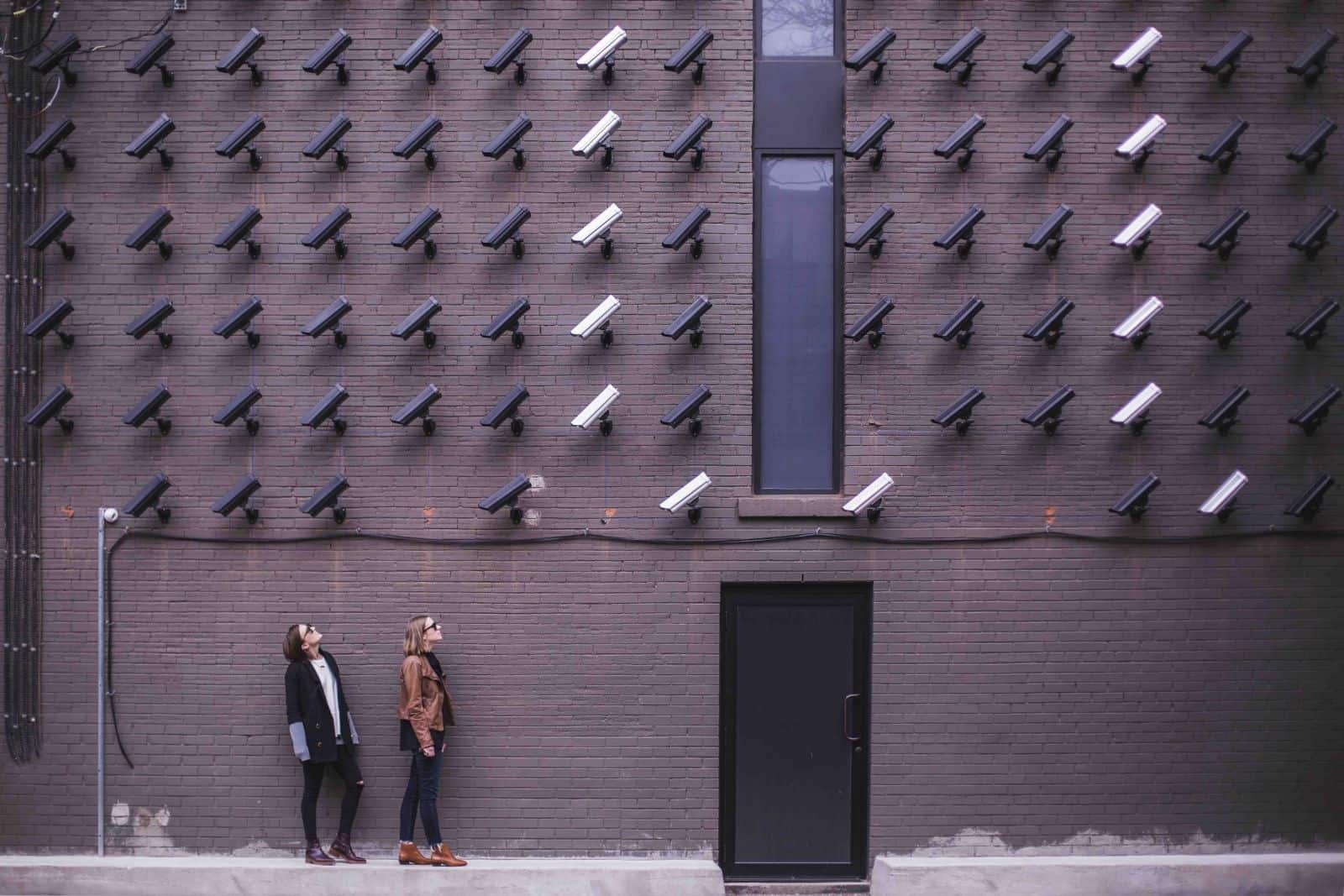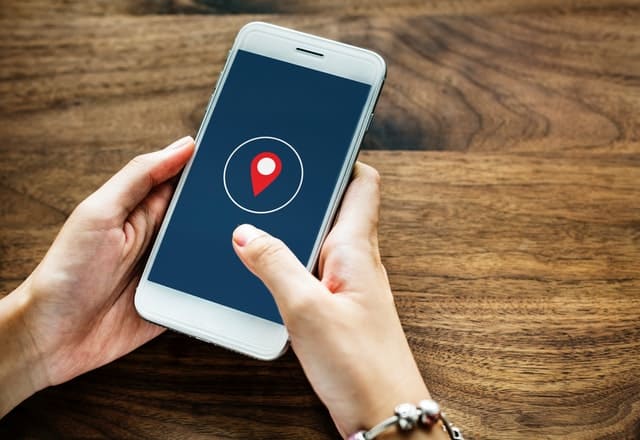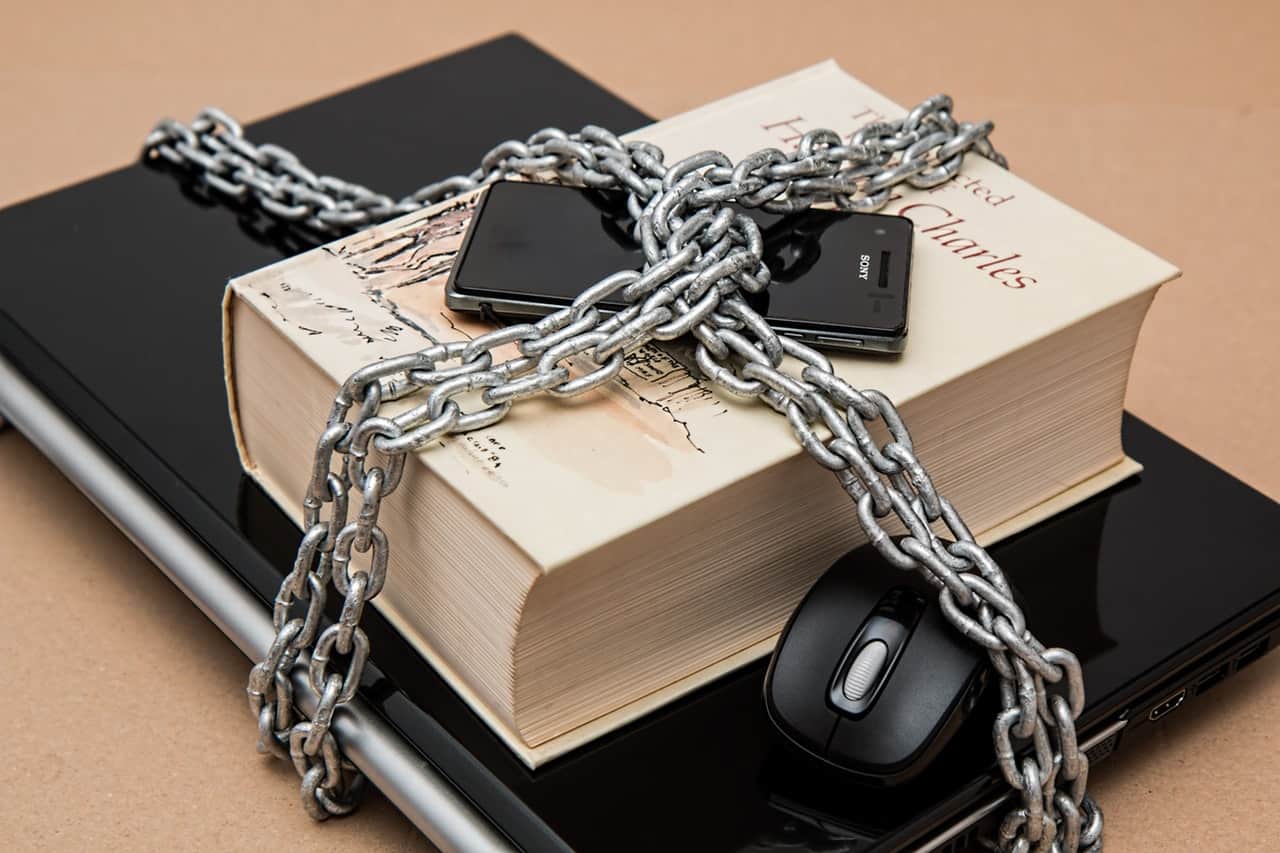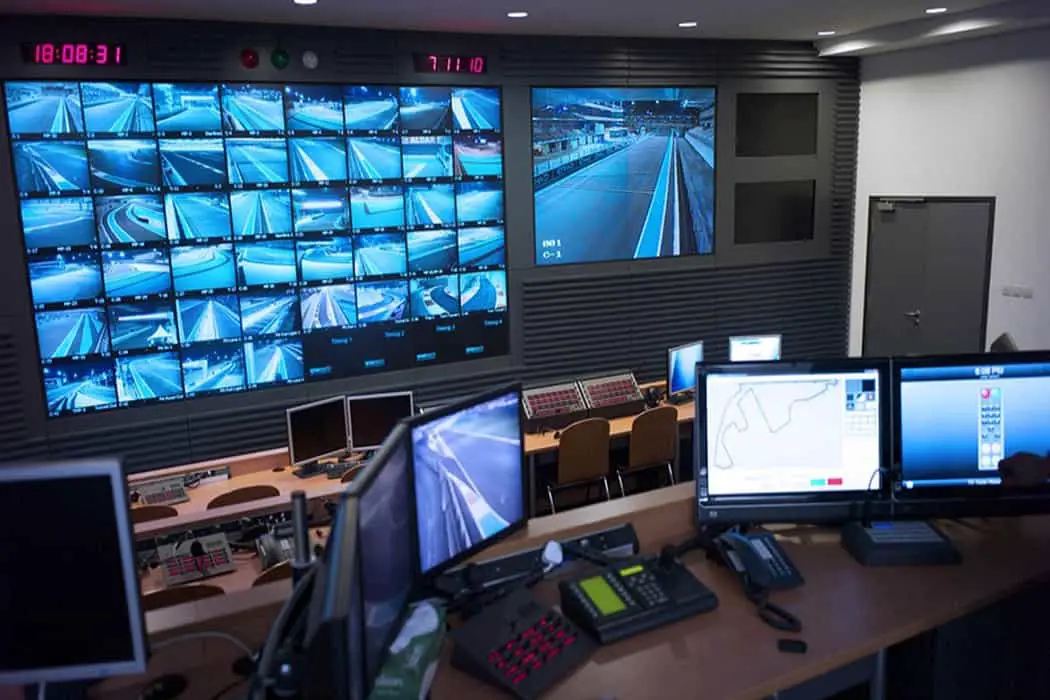Last week, one of my colleagues lost a large amount of data after she left her pen-drive in the office one evening. When she came to work the next morning, it was gone. She had no backups for the data either, so it was quite a loss for her and caused major inconvenience in the project she was working for. Despite best efforts, no one could determine who had taken the pen-drive.
This got the rest of us thinking and talking about cyber and physical security at the workplace- clearly, such security is of prime importance to protect employees as well as data, but how can it be strengthened further? As times are growing more complex and dangerous in terms of privacy, data use and personal security, it is evident that physical security at the workplace must cover multiple aspects such as protection of the person, the office, electronic systems and data from various threats.
Nowadays employers take care that CCTVs are installed at important junctures, such as the entry and exit points of the office, corridors, etc. Many of them provide travel arrangements for employees working during odd hours. As far as physical protection of hardware and data is concerned, most companies have their offices locked down securely and guarded at night for extra prudence. Far-sighted employers also make provisions for the protection of hardware such as computer systems, equipment, etc and for the swift recovery of data in case it is lost due to a security breach or disaster.
Even though companies are working very hard to protect their assets and data, security breach in every form is still rampant and thus, employees also have to exercise caution. There are multiple means by which malcontent hackers, thieves and scammers, not to mention petty rivals of the company on occasion, can attempt to breach the security. Thankfully, these days awareness has also increased regarding workplace security and there are many ways in which one can protect themselves, their privacy and their assets. (We are have written a related article – 50 Workplace Security Questions and Answers (Everyone is Asking) )
)
25 Physical Security Tips for Employees

While much of the onus to create a safe space for employees and to protect office assets is on the employers themselves, office employees can contribute significantly to ensure that existing security measures are successful. Employers can only put certain provisions in place but it depends on the staff to follow them accordingly and proceed carefully to protect both the company and themselves. As an employee, it is up to you to safeguard yourself however it is possible and to ensure that the company’s information and assets are protected too.
1. Take care of your belongings, particularly hardware and/or paper copies containing important or sensitive information. This sounds simple enough, but it is easy to overlook such details and accidentally lose privy information. Loss of data is not just dangerous, it is also extremely inconvenient. Make sure you lock your things up safely before leaving for the day. If you go out for your lunch break, you may want to lock up before that as well.
2. Participate actively in disaster management drills and safety procedures like mock fire drills. Most of us live in the complacent mindset, assuming that such disasters as fires and earthquakes will never happen at the workplace as it is unlikely, but we must be prepared, just in case.
3. Keep track of training workshops and courses offered by the company to keep you up to date with security practices at the workplace- for example cyber security and physical security workshops. If workshops are not organized by your company, you may want to request the same from your manager.
workshops. If workshops are not organized by your company, you may want to request the same from your manager.
4. If you are at manager level, it is advisable to discuss with other managers and come up with a contingency plan. In the event there is any sort of disaster, this plan will help as everyone will know exactly what to do and can proceed in a more organized and orderly fashion.
5. Being able to protect yourself and possibly help save others’ lives in a threatening situation. Ask for self-defence classes and first-aid training camps to be organized by the company and if that does not come through, consider taking such classes up personally or with a group of colleagues outside office.
6. When you move in or out of office, ensure that you carry your identification card or employee ID card with you. This will help in maintaining tight security, which is otherwise often disrupted by employees forgetting their cards and insisting on being allowed inside.
7. If you work as a manager, it is your duty to ensure that the employees you are responsible for are trained adequately when it comes to security procedures. They should be aware of the best security practices to follow and you may test them on these practices from time to time.
8. Remain alert at all times. Report any suspicious instances to higher authorities and security personnel; such as unknown people trying to gain entry into the office premises, unannounced repair work being done suddenly, and so on. Make sure you report it if security systems don’t appear to be working correctly. If you yourself are in a security position, do not let unauthorized persons enter the premises.
9. If you work late hours at the office when fewer people are around, try to have a fellow employee with you at all times- such as when heading out for a break or going into different parts of the office which may not be populated. Carry a pepper spray around if you enter or leave office after dark, to protect yourself.

10. A large part of physical security is concerned with protection of employees from violence at the workplace. Every company has a policy related to such violence, explaining what comprises of workplace violence and how to report it. Keep the violence policy in mind and look out for yourself as well as others.
11. If you notice that any of your office equipment, such as hardware, drives, etc are missing, be sure to let authorities know immediately. Even if there was no important information, to your knowledge, in such devices, notify the concerned persons of missing equipments. Both the IT department and security will want to be notified of such theft, so do notify them if it occurs.
12. Be very careful about divulging company information to outsiders or sources that seem the slightest bit suspicious. Be cautious of opening emails that look strange and if you have doubts, check personally with the person who has sent the mail. If it’s an unknown mail address, it may be better not to click on it as it could be a virus or scam. Similarly, don’t be liberal with confidential information over the phone.
13. Apart from diligently attending fire safety drills and familiarizing yourself with emergency exits and routes, take precautions so that the likelihood of fire is lowered. For example, make sure that you switch off and unplug whenever needed, whatever electronic equipment you use. Switch off your computer and unplug accessories such as chargers.
14. If you are in security, it is important to recognize threats that are posed by insiders in the office. Often, it is not intruders from outside the office space who present physical security threats- sometimes there are employees who are resentful about something in the organization and are hence looking for ways to sabotage. Be wary of such threats and if you are not in security, do report any suspicious behaviour among other employees.
15. Password protection is another important security measure you must take when you are at work. Be sure never to leave your phone, laptop or desktop unlocked, as anyone may access these devices and gain hold of your private information or the company’s data. Always ensure that your devices are protected by a strong password. If you have a habit of forgetting passwords, keep them relatable and don’t leave them written down anywhere near the desk space.
16. Disaster prevention and mitigation are sound measures to take in advance. However, if you are at manager level, disaster recovery is equally important. Get together with other managers to draft a robust disaster recovery policy, such as recovery of data in case a fire breaks out in the office or computer systems are damaged.
17. To ensure that data is protected, remember to dispose of papers safely. It is often a habit to throw away paperwork once it is not required anymore, but the information on that paper can be misused by malicious sources. Use the shredder to make sure that no one can access the information.
18. This might seem elementary but remember to store backups. To be safe, make multiple copies of important documents and store in different locations. If you have something on a flash drive, ensure that this data is present elsewhere too, in case this one is lost or corrupted at some point.
19. Whenever any important communication is sent out, make sure you discuss it with the people involved beforehand so that everything is clear. Ensure that there is no chance of lost or misplaced information. Be careful about emailing people who are not in your contacts.

20. Apart from keeping backups, knowing how and where to keep those backups is also crucial. Backups are also open to theft and misuse, so be sure to keep backups in safely locked and secure locations. Lock drawers and cabinets containing physical backups.
21. Employees in charge of IT will want to make sure that there are strong firewalls in place to keep out online intruders and protect the employees’ information and that networks are strongly protected with a set of passwords and access points.
22. IT employees should additionally ensure that once an employee exits the organization, his or her email account and other databases should be locked down and suspended completely to avoid malicious sources hacking into them.
23. Physical security has many aspects and one of them is the well-being of employees. Sometimes an employee might be coming down with an infectious illness and it is up to fellow employees to take note, for the well being of the employee as well as to avoid the spread of contagion.
as well as to avoid the spread of contagion.
24. As mentioned before, sometimes threat to security comes from insiders in the organization. This is not just with respect to damaging equipment. Be wary of other people who stare at your computer screen as they pass by, while you are doing something important. Don’t share information unless you are authorized to do so with that particular person.
25. Last but not the least, when it comes to private information; protect not just your own confidential info, also safeguard the information of other employees. Don’t give out phone numbers and other credentials you may have of your co workers without their permission.
Related Questions
What can employers do to protect their assets, employees and data?
When it comes to physical security, employers have the maximum power to ensure that a secure system is implemented properly. To begin with, companies can install CCTV cameras in important locations to maintain 24/7 surveillance over the office premises. In case there is any theft, loss or break-in, such footage will help the company trace the crime back to the perpetrators. If theft of personal items occurs internally, the presence of such footage will also help avoid baseless accusations and to solve the matter without much conflict. Further, incidences of crime will be lowered as well.
It is imperative that the security system installed should include both manual as well as smart computerized security mechanisms. Employers must station security guards at entry and exit points of the office as well as in other areas where there may be potential physical threat. Further, the employers must train the security guards regularly and conduct drills to ensure that they are aware of their duties and responsibilities. Similarly, awareness sessions should be conducted for all employees to tighten security and make sure that protocol is followed by everyone.
Responsible employers who want to safeguard their employees completely should also make arrangements to ensure that services such as cabs and adequate security patrol are provided for employees, particularly female employees working at night.
In order to further enhance the physical security of the office premises, the employers must ensure that top quality lock systems, sensors and fixtures are used in the building to protect the office. The premises should be as fire-proof as possible. Provisions for man-made disasters such as fires, break ins, etc., and natural disasters such as earthquakes should be made in advance by employers. Emergency exits, equipment such as fire extinguishers and so on should be placed wherever suitable and the functioning of such equipment should be checked by regular inspection.
Finally, to ensure safety of employees in a more individualistic sense, employers must provide a code of conduct for all the employees to follow. Any violation of this set of rules should be investigated and looked into seriously, to protect employees from issues such as discrimination, sexual harassment and other personal attacks. (We have written a related article – Workplace Health And Safety, Business Productivity And Sustainability (10 Strategies to Build a Sustainable Workplace) )
)
What are some upcoming tools and technologies used to enhance physical security?
With advancing technology, security is no longer limited to guards and even to CCTV surveillance. Increasingly, new advanced systems are being put in place that can protect and cover large areas efficiently. Artificial intelligence is gaining popularity these days in security as well, since automated systems are more trustworthy and fool-proof once programmed, unlike manual methods which may have errors. Additionally, the use of Internet of Things (IoT) has demonstrated that far off locations can be accessed remotely from different areas, which saves time and adds productivity to the security process. (We have written a related article – Efficient Workplace Security Devices )
)
Biometric systems have made their place in identification mechanism for both attendance as well as security purposes. These systems can keep track of the time a person signs in to work and when they leave for the day as well. Biometric systems work by scanning recognized thumb or finger prints and sometimes retinal scans, which cannot be copied or forged in any way, thus tightening security further. These days, such systems are used in offices to prevent unauthorized entry and to safeguard the employees present in the office. They are more effective than badges and chip-integrated ID cards as well, since such items can be misplaced and can come into wrong hands, but fingerprint and retinal scans are unique and are hence completely fool-proof.
Further, the use of sensors has also become prolific in offices where employers want to avoid the risk of any physical threat whatsoever. These include heat sensors, sensitive movement detectors and of course, smoke detectors in case of a fire. The sensitivity of these sensors is such that they are able to focus on anything out of the ordinary and prevent instances such as theft. They serve as deterrents to crime and physical threat.
Technology indeed plays an important part in improving physical security and with further development, AI systems are said to be the future of cyber as well as physical security.

